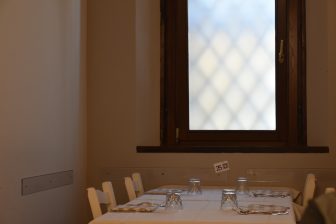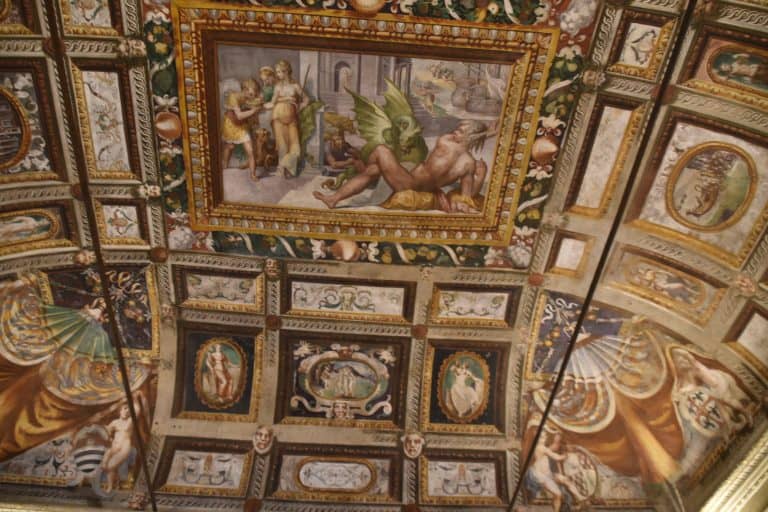
[June 2025] The final stop on our short trip to Italy‘s Emilia-Romagna region was the town of San Secondo Parmense.
It’s a sleepy little town, but it’s home to the Rocca dei Rossi Castle.
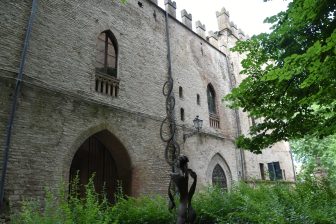
We weren’t allowed inside; we had to take a tour (€8 for adults, €6 for those over 65).
The castle was built as a fortress between the late 14th and early 15th centuries, but was lavishly renovated into a residence in the 16th century.
It was apparently home to generations of the Rossi family, knights in the Middle Ages.
We toured the rooms, each with its own magnificent ceiling frescoes.
One room was painted with scenes from Aesop’s fables.
Apparently, this was to teach the family’s children various life lessons, such as “don’t trust people too easily.”
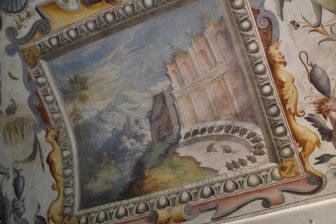
The painting also features the story of the mouse trying to bell the cat, which is said to teach the lesson that “a good idea is useless if it cannot be put into practice.”
Aesop‘s fables are famous worldwide today, and they were also popular in the Middle Ages.
After all, Aesop lived in the 5th or 6th century BC, making his fables a longer-selling classic than the Bible.
This shows that the truths of human life never change.
As a family of knights, the frescoes often depicted heroic scenes.
One room depicted several battles in which the owner of the house participated.
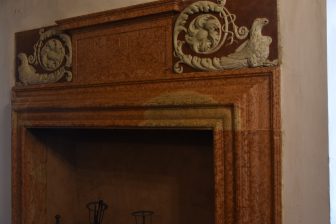
On the other hand, there was also a women’s room with an art-themed theme.
One room’s fireplace has an anecdote:
‘It is said that at one time, the owner of the house fell in love with a young woman, but when she rejected him, he killed her.
As expected, as a man who used force for his job, he was a violent man.
Apparently, the fireplace is red because of the woman’s blood, which was splattered on the fireplace during the attack.
And ever since, it’s been said that a ghost has been haunting the room.’
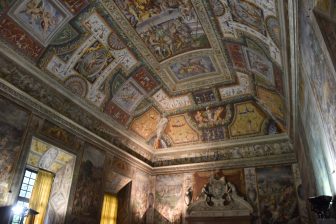
Many of these rooms have luxurious ceilings but whitewashed walls.
The reason for this is that during epidemics, it was known from experience that lime had antibacterial and disinfectant properties, so painting the walls white was an attempt to prevent infection.
The last great hall we were shown was dazzlingly luxurious, with frescoes covering the walls.
This room, too, was whitewashed in the past, but apparently, after the 20th century, the plaster was painstakingly peeled away, revealing beautiful paintings beneath.
This room is the Sala delle Gesta Rossiane (Hall of the Rossi Family’s Achievements), and it is said that it demonstrated the Rossi family’s power by showcasing their heroic tales to visitors.
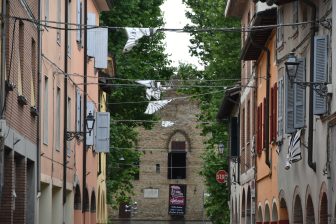
However, after the Rossi family’s fortunes fell into decline, the Sforza family bought the castle, but apparently sold off the furniture and other items to raise funds and left it abandoned.
It later became the property of the city and was used as town hall until 2007.
In Italy, it’s common to see examples of historical buildings being used as town halls.


